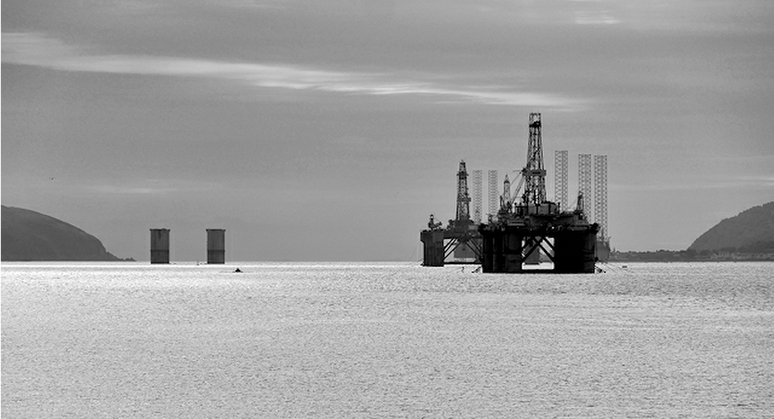Oil operators seeking significant tax breaks to boost activity were disappointed this week when the chancellor instead bought time by setting up a committee, Murray Richie reports.
Just as the UK’s offshore oil industry is making optimistic sounds for the first time in years, the politics of oil are, surprisingly, being shunned by the Scottish National Party.
In the 2014 Scottish independence referendum the SNP were badly burned when the collapse in the oil price meant the party’s optimistic revenue predictions blew up in the then leader Alex Salmond’s face.
Nicola Sturgeon, Scotland’s nationalist first minister, wants no repeat as she contemplates Indyref2. Her party strategists are ignoring the renewed sense of offshore industry optimism for fear of being embarrassed a second time.
This means projected oil revenues will not be built into Scottish government economic planning. If, as expected, they materialise they will be regarded only as a “windfall”, according to Andrew Wilson, former SNP member of the Scottish Parliament and chair of the party’s Growth Commission.
That, at least, is his recommendation. His views on the SNP’s other big failure last time – the currency question – are being worked on with a sense of urgency amid speculation that an announcement on Indyref2 is imminent.
If his oil policy is adopted – as it certainly will be – this will mark the first time in more than 40 years that the SNP will fight a campaign without oil as a major weapon.
The old “It’s Scotland’s Oil” slogan will be abandoned as the party argues that times have changed. Westminster has already squandered decades of oil money, the SNP argues, and the price of those reserves still recoverable is impossible to predict.
But there is a new air of expectancy in the industry. “After the past few years we are coming up for air after a very difficult period,” Mike Tholen, head of Upstream Policy at Oil and Gas UK, told BBC Scotland on Tuesday. He predicted that 2017 would be a better year than last.
… The industry can continue to provide a secure supply of primary energy for many years to come, as well as high-value jobs, transferable technologies and wealth for the nation
Analysts believe that after two years of streamlining costs there is now a need for investment as the oil price, currently back over $50 a barrel seems to be nudging towards $60 with no sign of it dropping again.
New international investment is justified, says Mr Tholen, after the lowering of the industry’s cost base and improvements in competitiveness.
“We are making ourselves fit for $50 to $55 a barrel,” he says. After more than 120,000 job losses since the price collapse, the industry is now “treading water” on employment.
Deirdre Michie, chief executive of Oil & Gas UK, foresees North Sea exploration and production returning to a positive cash flow for the first time since 2013 if costs are contained and commodity prices hold.
In her annual update she calls for decommissioning to be managed in a way that maximises economic recovery.
“With up to an estimated 20 billion barrels of remaining hydrocarbons to recover, and with the right governmental support, the industry can continue to provide a secure supply of primary energy for many years to come, as well as high-value jobs, transferable technologies and wealth for the nation,” Ms Michie says.
In parallel with exploration and extraction will be new opportunities presented by decommissioning. Clearing up after oil is the new big business, but it is complicated by major environmental arguments.
Should the oil companies be made to clear away abandoned sea structures or should some of them be left in place?
Shell, for example, wants some structures in the Brent field to stay put despite international rules stating they should be dismantled and removed.
Shell says these massive structures were not built to be removed and will be useful as navigational aids for shipping and useful for encouraging revival of fish stocks.
Green and environmental groups go along with some of this argument, but only so far. They accept there are some advantages in leaving some structures in place, but suspect Shell is simply trying to save money while risking pollution.
Chancellor Philip Hammond’s Spring Budget on Wednesday proved a disappointment for North Sea operators seeking significant tax breaks to boost activity.
Instead of announcing incentives for extending the life of dwindling oil fields and encouraging decommissioning, the chancellor took the cautious option and, in effect, bought time by setting up a committee.
He said a panel of experts would investigate the tax regime with a view to stimulating new investment.





